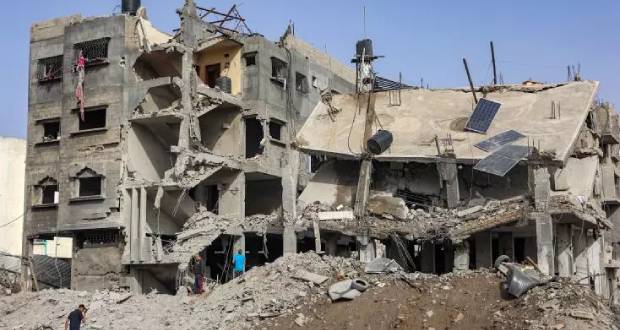Publicité
Africa’s problems are of its own making
Par
Partager cet article
Africa’s problems are of its own making

I read with interest Mr Makhan's piece, African unity at 50: Trials and Tribulations. But I beg to disagree with him on several issues.
Mr Makhan, it seems, places the blame for Africa's current woes to the arbitrarily drawn borders by Africa's colonial powers at the 1884 Berlin Conference. While that is true to some extent, it is by no means the whole truth. If one cares to look at African GDP growth rates before and after the mid-1960s (a cut-off point marking a period when many African countries achieved Independence), one would unmistakably observe that Africa was more prosperous under colonial rule, and in the first few years after Independence, than it has subsequently been. For example, Africa’s GDP per capita in 2006 was the same as in 1974 – more than 3 decades earlier. And while it is true that Africa’s economic performance – in aggregate terms – has improved in recent years, the progress remains fragile, and the continent as vulnerable as it ever was.
We – and I'm saying ‘we’ as Africans – have engaged in this blame-shifting game for far too long! But imagine, for a moment, that history was written differently. Imagine that the Berlin Conference had drawn geographical borders taking into consideration the most complex factors, including political and ethnic fragmentation. Would that have solved Africa's plight? I wonder...
The truth is that Africa’s problems are of its own making. The continent is rife with greedy political leaders and corrupt regimes, which make a mockery of democracy and treat the country as if it were their property. For 50 years, African governments have been told that they should diversify their economies out of raw materials (copper, oil and natural gas) and commodities (cocoa, tea, coffee, cotton) into manufacturing and services. Yet, Africa’s production structure has become not only more concentrated in these very products, there are also signs that industrialization – however timid – is faltering. For example, Africa’s share of manufacturing in GDP – a rough indicator of how industrialized the economy is – declined from 15% in 1990 to 8% in 2011. And Africa’s increasing engagement with the emerging economies (read China) is likely to further push the continent into the raw materials corner and compromise any chance of an industrial renaissance.
One thing that Africa has done with success, however, is to tender the begging bowl! The continent has received more aid, both in absolute terms and per capita, than any other developing region of the world! Yet there is abundant evidence, including many amusing anecdotes, of aid being squandered, embezzled or diverted to dodgy purposes. Some countries – I’m not naming them – have their entire national budget financed by aid. Instead of using aid for development, as it is meant to be, they spend a considerable proportion of the funds to make sure that they keep flowing! Others have become darlings of the international donor community by cleverly showcasing their domestic tragedies (starving children, people displaced by natural disasters or conflict, etc.) to attract the greatest sympathy – in kind and in cash. Unfortunately, the real tragedy of Africa is that it has now become so much dependent on aid that any disruption in aid flow could seriously undermine its economy and its people’s livelihoods.
A similar story could be told of the multitude of trade preferences that poor African countries have received, and continue to receive. EU’s ‘Everything but Arms’ (EBA) initiative, which gives duty-free access to practically all exports from least developed countries (34 of Africa’s 54 countries are classified as such), is the most ambitious preferential scheme, but there are others, including United States AGOA. But again, the record of utilization of these preferences has been very poor. Only a few countries have been able to make good use of their preferential market access to increase their exports substantially or to diversify their exports, creating jobs and wealth in the process.
It is also important to dispel the hypocrisy about the Economic Partnership Agreements (EPAs) which, according to Mr Makhan, are being imposed by the EU. Let us recall that these EPAs were proposed as a WTO-compatible substitute to the ACP-EU trade agreement, the latest in the series being the Cotonou Agreement, when the latter expired in 2008. The EPAs, thus, were not ‘imposed’ by the EU; they were rather a systemic requirement to conform to the WTO. But they quickly earned a bad name because they required ACP countries to offer reciprocal trade preferences to the EU. The EPAs could be an opportunity for Africa since they come with softer rules of origin and a beefed-up development chapter. Regrettably, as is often the case with African negotiators, the less attractive elements in an agreement tend to attract the most attention!
Mr Makhan has eloquently paraded the litany of African institutions that purport to foster regional integration on the continent. Indeed, institutional weaknesses have long been described as Africa’s Achilles’ heel and so institutional-building is always welcome. But institutions are not enough – especially when they are not properly staffed, and, more importantly, lack political impetus. The proposal by the African Union to establish a continental free trade area is indeed a commendable one. But, in its current form, it is nothing short of a crazy idea.
The plan for the pan-African bloc was adopted in January 2012, with a completion date of 2017. The CFTA , it was agreed, would evolve from the Tripartite COMESA-EAC-SADC FTA upon its expected completion in 2014, and other regional FTA processes. Conditioning the CFTA on the Tripartite FTA makes the former entirely dependent on the achievements of the latter. As it is, the Tripartite FTA – launched in 2008 – is problematic in its own right, and several deadlines have already been missed. Bringing on board the regional integration initiatives from north, central and west Africa greatly complicates the picture, and provides more reasons to believe that a continental FTA is still a distant dream.
A bigger problem with African integration is that it is being driven by political rhetoric rather than economic considerations. Asia’s experience suggests that regional integration initiatives on the continent have been more successful because they were driven by business interests rather than mere political motives.Ironically though, the political motivation in Africa is not being matched by concrete action on the ground. It is one thing to agree to cut tariffs; it is another to actually implement the liberalization schedule. In Africa, however, instead of pushing for deeper liberalization, countries are coming up with long lists of sensitive products on which they wish to maintain protective tariffs!
Africa’s economic problems are home-grown and require local solutions. It also calls for an African Union that delivers concrete actions rather than mere action plans! We cannot speak of African unity unless we see it happening. As we speak, it is still in the making.
Publicité
Les plus récents






